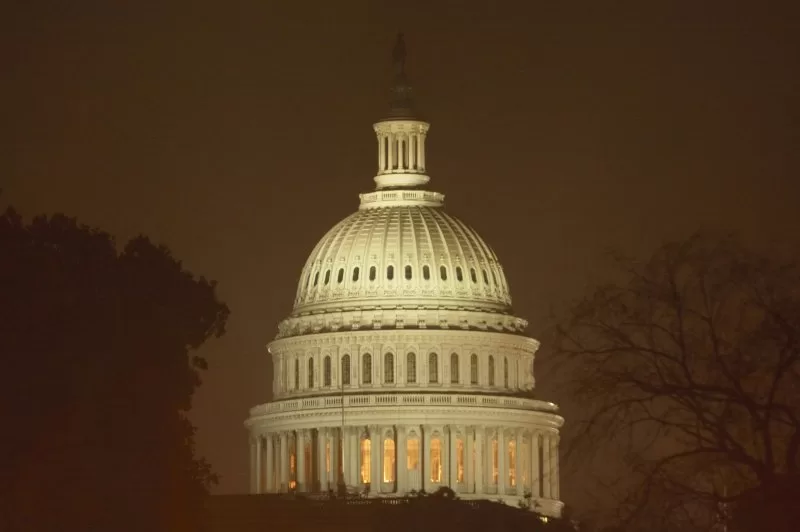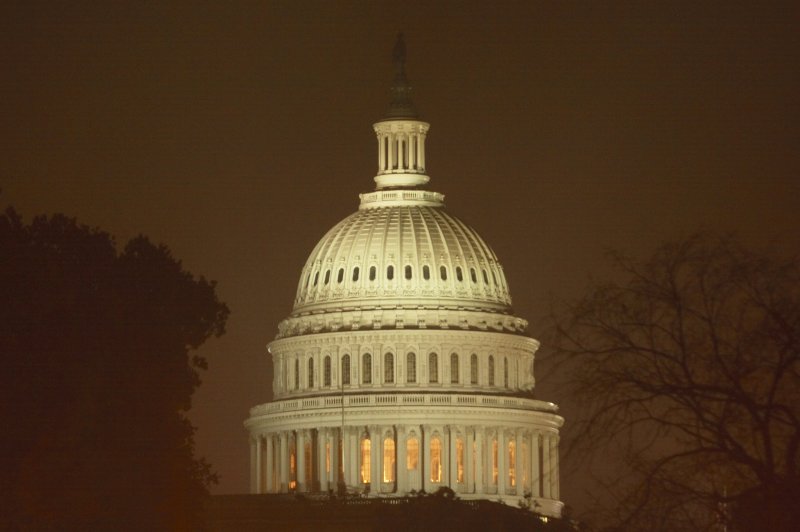1 of 3 | The U.S. House voted Wednesday night to pass a $78 billion tax bill to temporarily expand the child tax credit and reduce small business regulations in a rare bipartisan vote. The Tax Relief for American Families and Workers Act of 2024 now moves to the Senate. File photo by Kamenko Pajic/UPI Photo/ |
License PhotoJan. 31 (UPI) — The U.S. House voted Wednesday night to pass a $78 billion bipartisan tax bill to temporarily expand the child tax credit and reduce small business regulations in a trio of tax breaks.
The House approved the measure by a rare bipartisan vote of 357 to 70. The vote was split down both sides of the aisle with 188 Democrats and 169 Republicans voting for it, and 23 Democrats and 47 Republicans opposed.
“The numbers speak for itself. It shows that when you’re trying to deliver for the American people, people will join together and that’s what we saw today,” House Ways and Means Committee Chair Jason Smith, R-Mo., told reporters after the vote.
The Tax Relief for American Families and Workers Act of 2024 — which now moves to the Senate where its fate is uncertain — was negotiated by Senate Finance Committee Chairman Ron Wyden, D-Ore., and Smith who called it “pro-growth” policy.
“The Tax Relief for American Families and Workers Act locks in $600 billion in pro-growth, pro-worker and pro-American tax policies,” Smith wrote Wednesday in a post on X.
“Passing this bill will restore key provisions of the 2017 Trump Tax Cuts, that have a proven record of creating millions of jobs, raising workers’ wages and sparking more investment and economic growth right here at home,” Smith said in a speech Wednesday from the House floor.
“American families will benefit from this bipartisan agreement that provides greater tax relief, strengthens Main Street businesses, boosts our competitiveness with China and creates jobs,” Smith said on Jan. 16, after House and Senate committee members announced the bipartisan deal.
Specifically, the bill hikes the maximum child tax credit from $1,600 to $2,000 per child through 2025. Most of the child tax credit would benefit 15 million children from lower-income families. Despite overwhelming support, some Republicans were critical.
“I do rise in opposition to this legislation. And I do so reluctantly because I know the significant amount of work by my friend from Missouri, by those on frankly both sides of the aisle, to reach agreement,” said Rep. Chip Roy, R-Texas. “But unfortunately, as happens in this town, this legislation comes with provisions that, frankly, the people I represent are tired of. And its provisions that would continue to expand the welfare state.”
Rep. Matt Gaetz, R-Fla., called the bill “how the bipartisan agreement came together.”
“If the Republicans were willing to give Democrats what they wanted for illegal aliens to get massive subsidies in welfare, then the Democrats were willing to give the Republicans what they wanted on a bunch of business welfare,” Gaetz argued.
In addition to expanding the child tax credit, the deal also restores three business tax deductions from the 2017 Tax Cuts and Jobs Act, during the Trump administration, which include allowing businesses to deduct research and development costs every year instead of over a five-year period.
The bill also provides expedited tax relief for communities hit by disasters and improves low-income housing tax credits by raising the ceiling by 12.5% through 2025.
Finally, the measure kills the fraud-plagued Employee Retention Tax Credit program, which was created during the COVID-19 pandemic. The provision, which accelerates the deadline for filing backdated claims, is estimated to save taxpayers more than $78 billion, which the Joint Committee on Taxation claims would cover the cost of the legislation.

